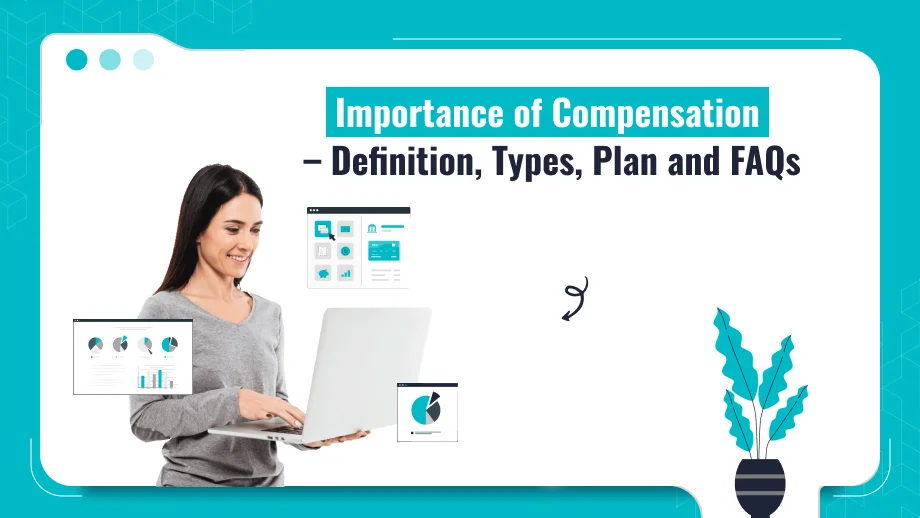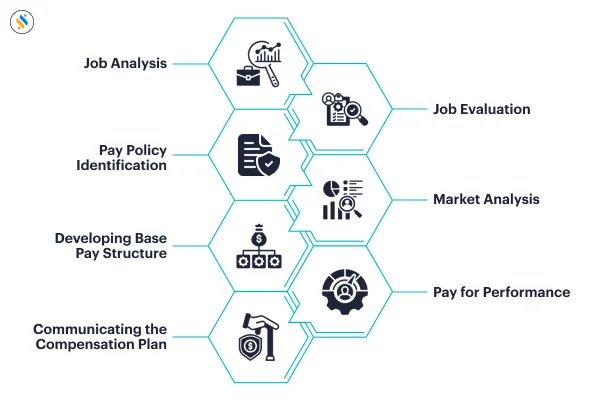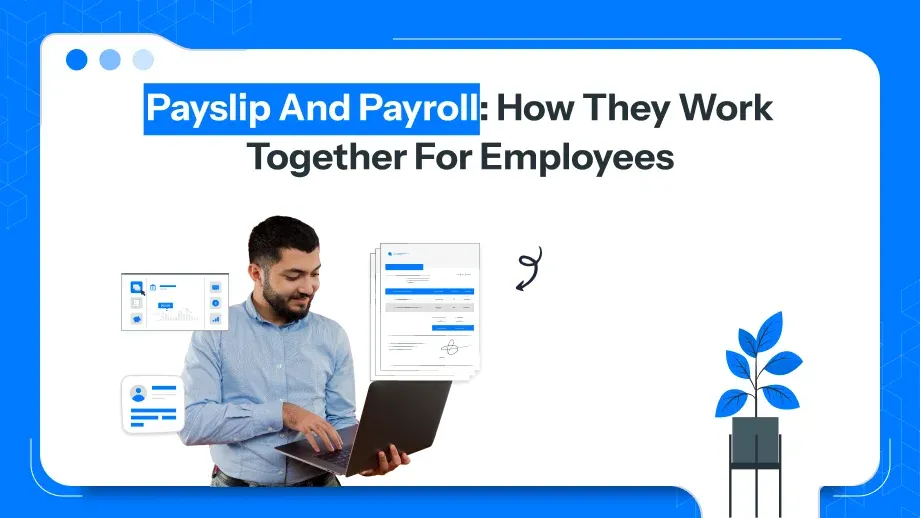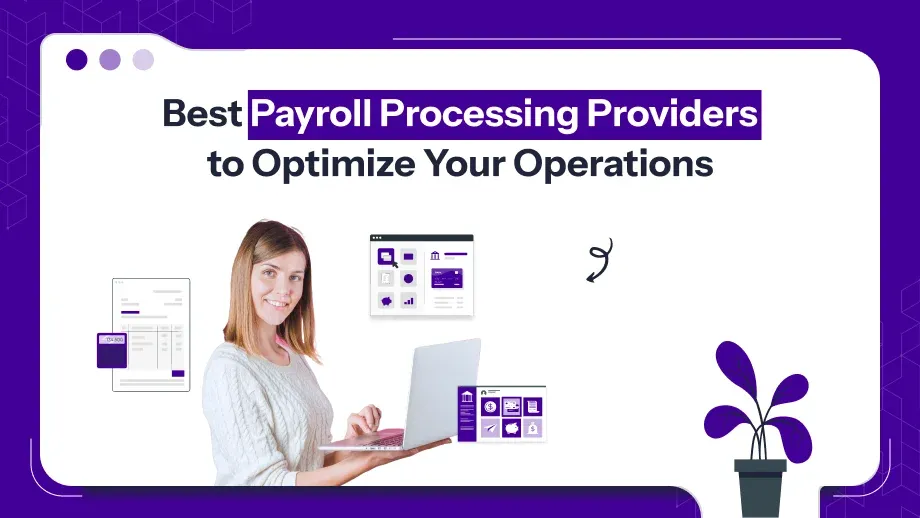The importance of compensation should be in line with the strategic goals such as growth, innovation, efficiency, and culture. Incentive plans can also ensure that human behavior is directed towards the best results.
Grab a chance to avail 6 Months of Performance Module for FREE
Book a free demo session & learn more about it!
-
Will customized solution for your needs
-
Empowering users with user-friendly features
-
Driving success across diverse industries, everywhere.
Grab a chance to avail 6 Months of Performance Module for FREE
Book a free demo session & learn more about it!
Superworks
Modern HR Workplace
Your Partner in the entire Employee Life Cycle
From recruitment to retirement manage every stage of employee lifecycle with ease.


Seamless onboarding & offboarding
Automated compliance & payroll
Track performance & engagement
Importance of Compensation – Definition, Types, Plan and FAQs
- what is compensation management
- 5 min read
- May 23, 2024
What is importance of compensation management? Let’s explore the importance of compensation, highlighting the three elements of a base compensation system: internal alignment, external competitiveness, and compensation management.
But first, a definition: compensation is pay provided by an employer to an employee in return for work. Total reward is a concept that describes all the tools available to an employer that may be used to attract, motivate, engage, and retain employees. Here’s all you need to know about the benefits and perks are decides as per the importance of compensation plan.
7 Steps of Compensation Management You Should Follow
Compensation and benefits are comprised of two core elements: fixed pay, otherwise known as base pay that does not vary, and variable pay, which changes with performance or results. A basic model for building compensation plans includes three elements: internal alignment, external competitiveness, and compensation management. Seven steps or actions are organized in these three critical areas of compensation plan development.
Step 1: Job Analysis
Job analysis is the systematic process of collecting information that identifies similarities and differences in work. The outcome of job analysis is job documentation or job descriptions. Common methods include observation, interviewing, questionnaires, and hr data from resources.
Step 2: Job Evaluation
Job evaluation is the systematic process of determining the relative worth of jobs. The outcome is the development of an internal pay structure or hierarchical ranking of jobs through grades and ranges. Approaches include job evaluation with an internal focus and market pricing with an external focus.
Step 3: Pay Policy Identification
Determining a pay policy is the process of deciding whether the organization wants to lead, lag, or meet the market in compensation. Pay policy options include matching the market, leading the market, lagging the market, or using a combination of these options.
Step 4: Market Analysis
Market analysis is the process of analyzing importance of compensation data gathered from other employers in a survey of relevant labor market data. This step ensures the organization’s compensation system remains externally competitive. Marketing analysis is one of the most important steps of compensation management. It helps you in attracting and retaining top talent.
Step 5: Developing Base Pay Structure
Developing the base pay structure involves merging job evaluation with external market pay rates to create a market pay line, from which pay grades and ranges are developed. The market pay line may be adjusted based on the pay policy.
Step 6: Pay for Performance
Performance pay involves determining the use of pay that varies with some measure of individual or organizational performance, such as merit incentives or other forms of variable pay.
Step 7: Communicating the Compensation Plan
Communicating the compensation plan ensures employees understand it and have a clear line of sight between organizational mission, culture, and compensation. This step involves explaining the pay structure, pay differences, and providing total reward statements to employees.
Remember that compensation is a critical element of your total reward strategy, and a strong base pay structure is built through internal alignment, external competitiveness, and compensation management.

Looking for a Solution for the Payroll Process in India? – Try Superworks!
With our Super Payroll, you can track, process, and automate your payroll management reliably.
Discover how we can help you save time, eliminate errors, and comply with laws.
Major Types of Compensation Management For Your Business
Base Pay: People are paid a fixed, regular salary or hourly wage every month. This is usually the major part of a benefit package for an employee. Base pay is an integral component of an employee importance of compensation package.
Incentives: Performance-based bonuses, commissions, or other kinds of rewards that may encourage employees to realize particular objectives or targets. Some common incentives include commission-only earnings, annual bonuses, or completion bonuses for projects. Make sure the incentives are highlighted in the compensation package that is the main key for the importance of compensation.
Welfare packages: These include other fringe benefits such as health insurance, retirement plans, vacation and holidays, tuition reimbursement, and other benefits paid by the organization. Benefits enable the employer to attract and retain their employees.
Ownership: Some companies provide stock options, restricted stock units, or other equity-based rewards. This makes employees own some shares and gives them an interest in the company’s success. Ownership is an effective compensation type to attract and hire the best talent.
Importance of Compensation Plans For Your Business
-
-
Pay for Performance – HRD compensates based on individual, team, or organizational performance measures.
-
Competence-based – The compensation results from the acquisition of skills, knowledge, and competencies but not tenure.
-
The grading principle – The pay grades are grouped into smaller, wider salary ranges. This makes it easier to alter wages.
-
Fixed salaries – Adjustments are made in pay to ensure that employees performing like tasks are not discriminated against during the determination of their wages.
-
-
Market-Based Pay – The pay is directed in a salutary performance at the market prices. This is instrumental in helping us attract and retain top talent.
In conclusion,
A clear description of any pay philosophy, pay practices, and individual levels of compensation. Continuous negotiation about performance targets and avenues for development through career progress. As a business owner or HR professional, one should never take the importance of compensation management for granted. Make sure you streamline the compensation management process for maximized productivity. You can also get the free compensation management PDF to manage your compensation.
Keep track of laws and regulations about equal pay, minimum wage, overtime, and other requirements as the importance of compensation. That being said, are you looking for the best HR payroll software? Check out Superworks! This online payroll software is equipped with all the tools and features you need for workforce management! From attendance tracking and employee self-service to payroll management, we’ve got you covered! Get in touch with us today to know more.
Also See: Track your expenses online | Employee Rewards and Recognition
FAQs
How can we pay the amount of compensation by linking it to the strategy of the company?
How frequently do we need to revise rewards?
At least once a year, although market changes might sometimes require more frequent adjustments. Workers should know the process and timing in which salaries are reviewed.
What means can we use to maximize our compensation budget?
Determine balanced pay ranges, establish variable incentive pay, create cost-effective benefit plans, and compare competitors to ensure value.
What are the key elements of a comprehensive compensation strategy?
A comprehensive compensation strategy includes base salary, performance bonuses, benefits (health insurance, retirement plans, etc.), non-monetary rewards (recognition programs, career development opportunities), and work-life balance initiatives (flexible working hours, remote work options).
How does compensation affect employee motivation?
Compensation affects employee motivation by providing financial rewards that align with their personal and professional goals. Performance-based incentives, such as bonuses and commissions, can encourage employees to exceed their targets, fostering a culture of high performance.






